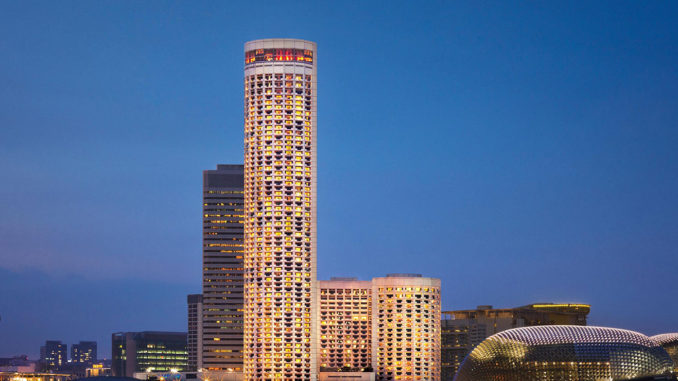
AccorHotels’ iconic Swissôtel The Stamford is the first hotel to showcase Interact Hospitality from Signify, which became the new company name of Philips Lighting as of a few months ago. The hotel, which is located in Singapore and ranks as one of the largest in South-East Asia, will reportedly have the new hotel room management system fully installed in each of its 1,261 guest rooms by the time the hotel completes its renovation at the end of this year.
The new system enables guests to alter lighting, temperature and make room service requests at the touch of a button. This smart system also lets hotel staff know if a room is occupied and helps them to respond quicker to guest requests, providing useful information to improve the guest experience, optimize operations and save energy.
The main selling point of the new system: the lights come on automatically when guests enter the room; lights, HVAC and other systems shut down to conserve energy when they leave. The guest room uses artificial intelligence to remember preferences and know when guests are in or not.
Interact uses an open API that enables its connection to a variety of hotel systems, so that real-time information can be fed into everything from housekeeping to engineering systems. This helps make hotel operations more efficient. It also benefits hotel managers by integrating lighting, sensors, HVAC and property management systems, allowing them to monitor their entire property via a single dashboard.
One of the key operational benefits of Interact Hospitality is energy savings. In hot climates especially, HVAC can consume more than half of a hotel’s energy use. By using data from occupancy sensors located in guest rooms and information from PMS’s, Interact Hospitality can automatically turn down systems – including HVAC and lighting – when rooms are unoccupied. This allows managers to reduce electricity bills while ensuring rooms match guest preferences.
The room management system also displays information on room status so that staff do not reach out to guests unnecessarily. If a room is set to “Do Not Disturb,” the laundry delivery is automatically paused to respect guest wishes and save staff unnecessary trips and time. This also helps to increase staff satisfaction through more seamless processes.
